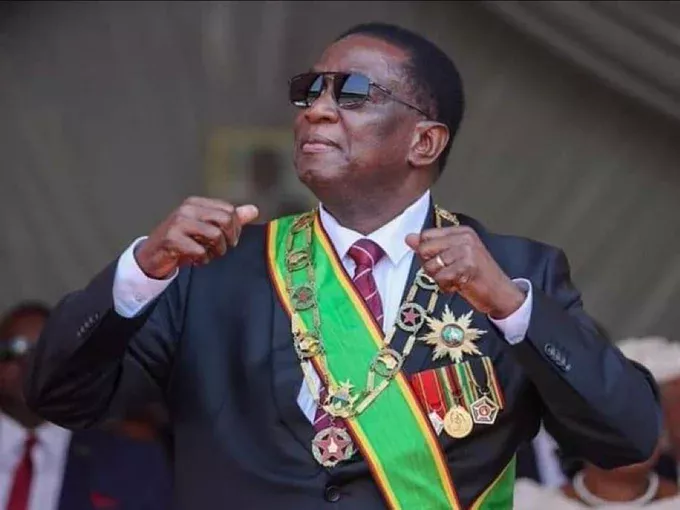ED talks peace while tormenting opposition

Zimbabwe President Emmerson Mnangagwa
In a striking declaration amidst national and international scrutiny, Emmerson Mnangagwa asserted that Zimbabwe stands unified and at peace, despite mounting accusations of harassment and suppression of opposition voices.
Addressing the 378th Ordinary Session of the Politburo, the ZANU PF leader sought to affirm his administration’s commitment to national cohesion and progress, even as critics question the sincerity of his claims.
“We are one and we stand undivided. There is peace in Zimbabwe. We are addressing discrepancies of the past,” Mnangagwa proclaimed, encapsulating the essence of his address that blended a message of unity with a rebuttal against allegations of political persecution.
The assertion comes at a pivotal moment for Zimbabwe, a nation grappling with a complex political landscape and socio-economic challenges.
Mnangagwa’s leadership has been marked by efforts to stabilize the economy and re-engage with the international community, yet criticisms over human rights violations persist.
The President’s words aimed to project an image of national harmony and progressive governance, seeking to reassure both domestic constituencies and global observers.
However, the backdrop against which these declarations were made is contentious.
Opposition members and human rights organizations have consistently raised alarms over alleged state-sponsored intimidation, arrests, and restrictions on civil liberties.
Such allegations have strained Zimbabwe’s international relations and stirred debates over the credibility of its democratic processes.
In response to these concerns, Mnangagwa’s address did not shy away from acknowledging past challenges while emphasizing a forward-looking agenda.
“We are addressing discrepancies of the past,” he affirmed, hinting at ongoing efforts to reconcile the nation’s historical grievances and to chart a path toward inclusive development.
The Politburo session, a cornerstone of ZANU PF’s decision-making apparatus, provided a platform for internal reflection and strategic recalibration.
Beyond its symbolic importance, the meeting underscored the ruling party’s resolve to steer Zimbabwe through a transformative phase, balancing continuity with the imperative for reforms.
As Zimbabwe navigates its way forward, the assurances of peace and unity voiced by Mnangagwa at the 378th Ordinary Session of the Politburo carry profound implications.
They signal an unwavering commitment to stability amid adversity, while also inviting scrutiny and dialogue on the broader aspirations for democratic governance and human rights in the nation’s trajectory.
In conclusion, while the declaration of peace in Zimbabwe echoes through the halls of the Politburo, the nation stands at a crossroads, where reconciling rhetoric with reality remains a pivotal challenge.
Mnangagwa’s words encapsulate both the aspirations and the complexities of a nation striving to redefine its future amidst persistent political and socio-economic pressures.




